Essentially,
I was reporting on all the aspects of this more than 36 hours before
it was reported by western mainstream media which, even now, can
hardly bear to mention the name “Muslim extremist”or “jihadist”
- it seems to be “islamophobic” to tell the truth.
It seems that everything I was saying has been borne out!
Here are just a few of the stories I brought you well in advance of the international media.
India,Sri Lanka's Joint Army Drill To Boost Counter-Terror Cooperation

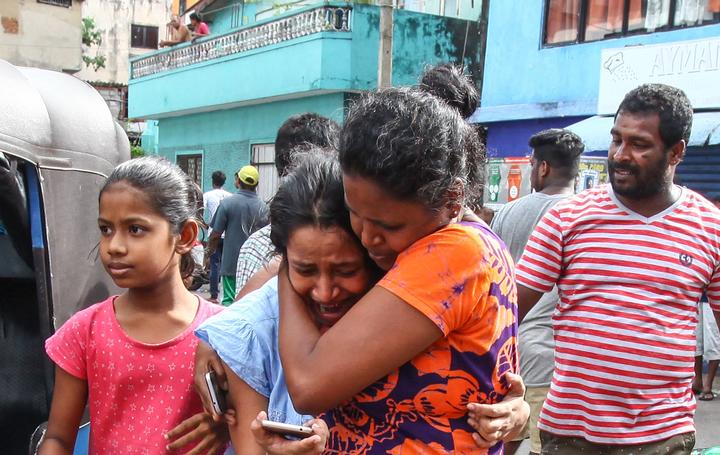
Sri
Lanka imposes emergency, says international network involved in
attacks

22
April, 2019
COLOMBO
(Reuters) - Sri Lanka said on Monday it was invoking emergency powers
in the aftermath of devastating bomb attacks on hotels and churches,
blamed on militants with foreign links, which killed 290 people and
wounded nearly 500.
The
emergency law, which gives police and the military extensive powers
to detain and interrogate suspects without court orders, would go
into effect at midnight local time, the president’s office said.
Colombo,
the seaside capital of the Indian Ocean island, was jittery the day
after the horrifying Easter Sunday attacks. Police said 87 bomb
detonators were found at the city’s main bus station, while an
explosive went off near a church when bomb squad officials were
trying to defuse it. Scores were killed in the church on Sunday.
A
night curfew went into effect at 8 p.m.
There
was no claim of responsibility for Sunday’s attacks but suspicion
was focusing on Islamist militants in the Buddhist-majority country.
Investigators
said seven suicide bombers took part in the attacks while a
government spokesman said an international network was involved.
Police
had received a tip-off of a possible attack on churches by a
little-known domestic Islamist group this month, according to a
document seen by Reuters.
The
intelligence report, dated April 11, said a foreign intelligence
agency had warned authorities of possible attacks on churches by the
National Thawheed Jama’ut. It was not immediately clear what
action, if any, was taken in response to the tip-off.
International
anti-terrorism experts said even if a local group had carried out the
attacks, it was likely that al Qaeda or Islamic State were involved,
given the level of sophistication.
Two
of the suicide bombers blew themselves up at the Shangri-La Hotel on
Colombo’s seafront, said Ariyananda Welianga, an official at the
government’s forensic division. The others targeted three churches
and two other hotels.
A
fourth hotel and a house in a suburb of the capital Colombo were also
hit, but it was not immediately clear how those attacks were carried
out.
“Still
the investigations are going on,” Welianga said.
Police
said 24 people had been arrested, all of whom were Sri Lankan, but
they gave no more details.
Most
of the attacks came during Easter services and when hotel guests were
sitting down for breakfast buffets.
“Guests
who had come for breakfast were lying on the floor, blood all over,”
an employee at Kingsbury Hotel told Reuters.

“TERRIBLE,
TERRIBLE THING”
Cabinet
spokesman Rajitha Senaratne said the government believed an
international network was involved.
“We
don’t think a small organization can do all that. We are now
investigating international support for them and their other links -
how they produced the suicide bombers and bombs like this,” he
said.
The
president, Maithripala Sirisena, said the government would seek
foreign help to track overseas links.
U.S.
President Donald Trump called Prime Minister Ranil Wickremesinghe to
pledge U.S. support in bringing the perpetrators to justice, a White
House spokesman said.
“A
terrible, terrible thing. Unthinkable,” Trump later told reporters
at a White House event. “We are working with Sri Lanka.”
Pope
Francis deplored the attacks and called for universal condemnation of
what he said were “terrorist acts, inhuman acts” that could never
be justified.
Buddhist-majority
Sri Lanka was at war for decades with ethnic minority Tamil
separatists, most of them Hindu, but violence had largely ended since
the government victory in the civil war 10 years ago. The country’s
22 million people include minority Christians, Muslims and Hindus.
Most
of the dead and wounded were Sri Lankans although government
officials said 32 foreigners were killed, including British, U.S.,
Australian, Turkish, Indian, Chinese, Danish, Dutch and Portuguese
nationals.
Denmark’s
richest man Anders Holch Povlsen and his wife lost three of their
four children in the attacks, a spokesman for his fashion firm said.
A
British mother and son were killed while eating breakfast at the
Shangri-La, British media reported, while five Indian political
workers were killed at the same hotel.
The
U.S. State Department said in a travel advisory “terrorist groups”
were plotting possible attacks in Sri Lanka and targets could include
tourist spots, transport hubs, shopping malls, hotels, places of
worship and airports.
Traffic
was uncharacteristically thin in normally bustling Colombo on Monday.
Soldiers
with automatic weapons stood guard outside major hotels and the World
Trade Centre in the business district.
An
Australian survivor, identified only as Sam, told Australia’s 3AW
radio the hotel was a scene of “absolute carnage”.
He
said he and a travel partner were having breakfast at the Shangri-La
when two blasts went off. He said he had seen two men wearing
backpacks seconds before the blasts.
“There
were people screaming and dead bodies all around,” he said. “Kids
crying, kids on the ground, I don’t know if they were dead or not,
just crazy.”
There
were similar scenes at two churches in or near Colombo, and a third
church in the northeast town of Batticaloa, where worshippers had
gathered. Pictures showed bodies on the ground and blood-spattered
pews and statues.
Dozens
were killed in a blast at the Gothic-style St Sebastian church in
Katuwapitiya, north of Colombo. Police said they suspected it was a
suicide attack.
Questions
over why the intelligence report warning was not acted upon could
feed into a feud between Prime Minister Wickremesinghe and the
president.
Sirisena
fired the premier last year and installed opposition strongman
Mahinda Rajapaksa in his stead. Weeks later, he was forced to
re-instate Wickremesinghe because of pressure from the Supreme Court
but their relationship is still fraught as a presidential election
nears.
FBI Sends Agents To Help Investigate Sri Lanka Attacks
21 April, 2019
Update: The US has become one of the first Western countries to oblige Sri Lanka's request for international support as it seeks to identify and dismantle what it believes is an international terror network that helped carry out Sunday's deadly Easter holiday attacks.
At least four American citizens died during Sunday's bombing spree, and several more were seriously injured. Sri Lankan Tourism Minister John Amaratunga said a total of 39 foreigners were killed and 28 wounded.
To help ensure justice is done, the Washington Post reported that FBI agents are being sent to assist Sri Lankan police in their investigation. The FBI will also provide laboratory expertise in testing some of the bomb-related evidence, and agents have been scouring FBI databases for anything that could shed light on members of the plot. Already, 24 people have been arrested in relation to the bombing, which authorities have blamed on National Thowheed Jamaath, a domestic Islamist group.
A Sri Lankan security official characterized Thowheed Jamaath as a shell for the Islamic State and said it has been active in Kattankudy, an area in the eastern part of the country and home to one of its largest Muslim populations. The group’s leadership is believed to be based there, the official said. The attacks on churches and hotels were carried out by seven suicide bombers, police have determined.
"This is America’s fight, too," Secretary of State Mike Pompeo said during a Monday morning press conference, where he reiterated that "radical Islamic terror" remains a threat even after the destruction of ISIS's caliphate. "We have to remain active and vigilant, and it’s going to require attention," he said.
* * *
The death toll in Sunday's devastating wave of Easter Sunday suicide bombings, which rocked three Catholic Churches and four luxury hotels popular with tourists, has climbed to 290, while more than 500 have been injured, making the assault even deadlier than the 2008 Mumbai attacks.
As the Sri Lankan government scrambles to apprehend anyone who conspired with the at least seven suicide bombers who carried out Sunday's attacks, Prime Minister Ranil Wickremesinghe appealed for international help "to find out if there was foreign assistance" to the bombers. Domestically, Sri Lankan police have already arrested two dozen suspects. A state of emergency is expected to be declared starting at midnight on Monday. The Colombo stock exchange has been closed for the foreseeable future as the capital city tries to process the aftermath of the attacks.
Meanwhile, the climbing death toll has established the attacks in Sri Lanka as the deadliest in South Asia in recent memory.
Here's a ranking by death toll:
- 290 (as of now): Sri Lanka bombings, 2019
- 257 Mumbai attacks, 1993
- 189 Mumbai train blasts, 2006 166 Mumbai attacks, 2008
- 151 APS/Peshawar school attack, 2014
- 149 Mastung/Balochistan election rally attack, 2018
Though no group has claimed responsibility for the attacks, it was revealed that Sri Lankan intelligence agents had tried to alert security officials of the potential threat of a major terror attack from an Islamist group known as the National Thowheeth Jama’th. The prime minister said that "although information on this issue has been received before, not enough attention was paid to the matter. The fact that ministers were also not informed is also connected to it, but first what we need to do is to ensure the country is not destabilised." One official said warnings about a possible attack had been received as early as April 4, according to the FT.
Officials were even given the names of some suspects in the bombings.
The National Thowheedh Jama'th is a small jihadist group based in the east of Sri Lanka. Previously, it had come under scrutiny for its extremist rhetoric as well as vandalism against Buddhist religious statues. Since an operation of this magnitude likely required considerable planning and logistics support, authorities believe the group likely had international assistance.
Here's more on that from the Guardian:
Analysts point out that multiple suicide bombings of six or possibly more targets requires a significant logistic operation and months of planning. Such attackers may detonate their devices alone, but need careful management by handlers to keep them committed in the days and weeks before. Large quantities of military-grade explosives would also have been necessary, as well as safe houses and bomb-making workshops.
The Sri Lankan government is asking for international help in investigating the 'international network' it believes supported the perpetrators of the attack.
"We do not believe these attacks were carried out by a group of people who were confined to this country," Minister of Health, Nutrition and Indigenous Medicine Rajitha Senaratne said on Monday.
He added that an "international network" without which the attacks likely wouldn't have succeeded was probably involved.
As the investigation into the attacks ramps up, the BBC is reporting that explosive detonators have been recovered at Colombo's main bus station, not far from the attacks.
Dozens of foreigners were killed in the attacks, including three of the four children of the Danish billionaire fashion tycoon Anders Holch Povlsen, one of the largest shareholders in the online clothing retailer Asos and owner of international clothing chain bestseller. Several Americans were also killed. Povlsen is also the largest landowner in Britain.
Celebrity chef Shantha Mayadunne and her daughter were also killed in the explosions. The women and their family were eating Easter breakfast in a restaurant in the Shangri-La hotel in Colombo Sunday morning when the bombs detonated.
To fight the spread of disinformation and hate speech following the attacks, the government has cut off access to social media like Facebook and Whatsapp.
CTGN reported that another bomb detonated in Colombo as authorities tried to disarm it. It's unclear if there were any additional casualties.
The coordinated attacks began with the bombings of three churches and four hotels, followed by an eighth bombing timed to hit people fleeing from the initial attacks. An apartment complex was also targeted and a bomb found near the Colombo airport was also diffused.
Authorities believe suicide bombers were mostly responsible, per WSJ:
There were at least eight explosions, most blamed on suicide bombers. Six of the attacks were coordinated and were carried out by seven suicide bombers, according to a preliminary examination of scattered body parts by the country’s official experts. Two men appear to have blown themselves up at the Shangri-La Hotel in Colombo, said Ariyananda Welianga, a government investigator who studied the bodies, while single bombers attacked two other high-profile hotels and three churches.The suspected bombers’ heads and limbs were severed from their torsos in a way consistent with suicide attacks, Mr. Welianga said. His experience with such cases goes back to Sri Lanka’s civil war, during which a Tamil insurgent group carried out suicide bombings, he said.The analysis of material recovered from the explosion sites also showed that metal balls had been attached to the bombs to inflict shrapnel injuries in addition to blast injuries, Mr. Welianga said.
Here's a map of the attacks.
The UK's Channel 4



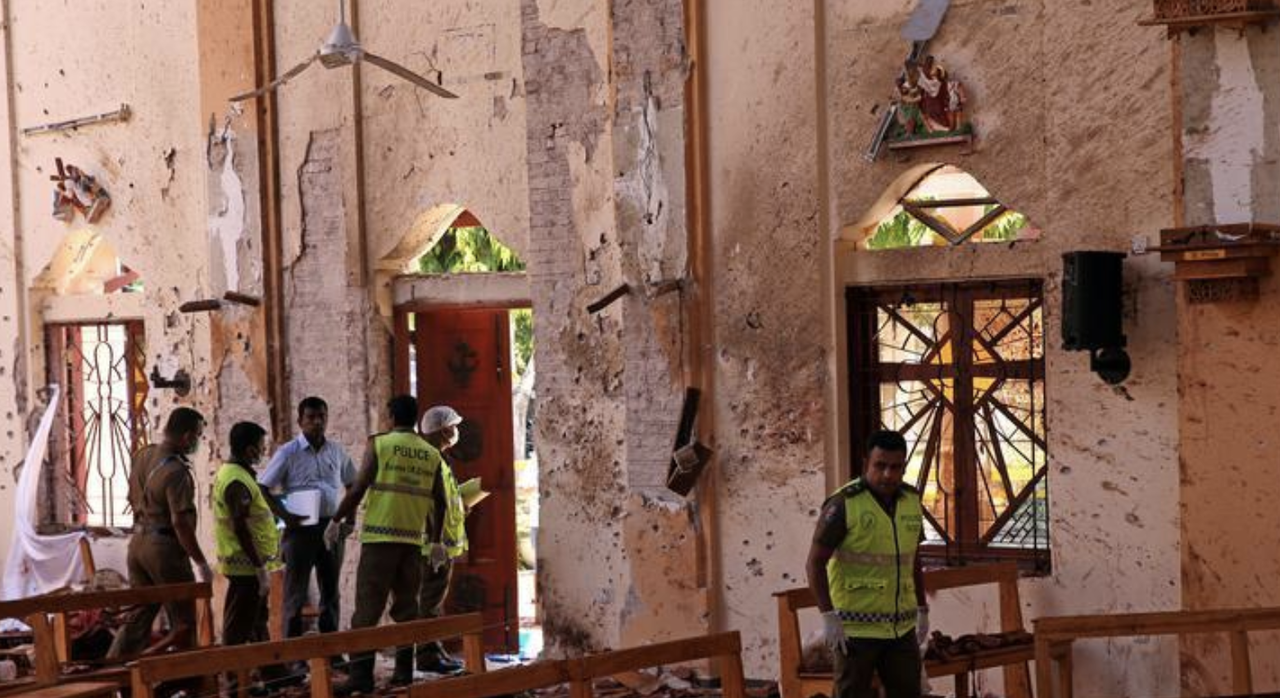
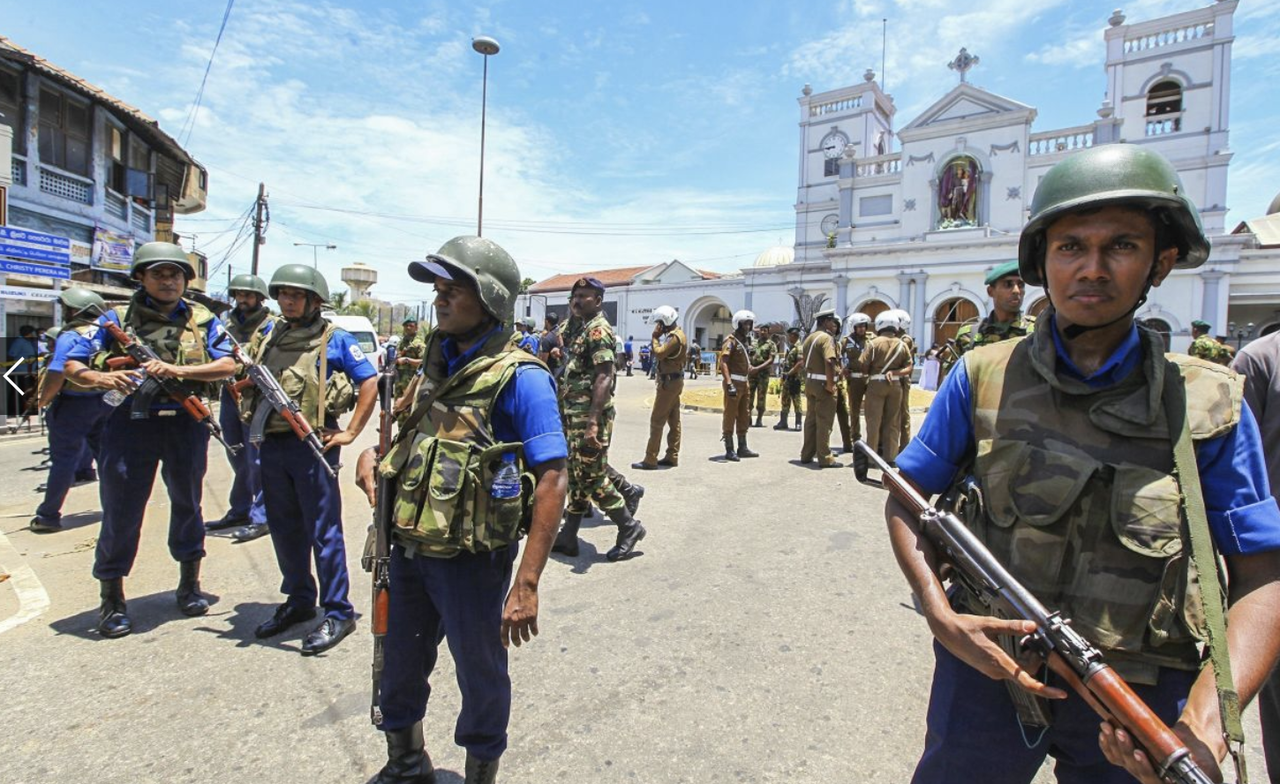

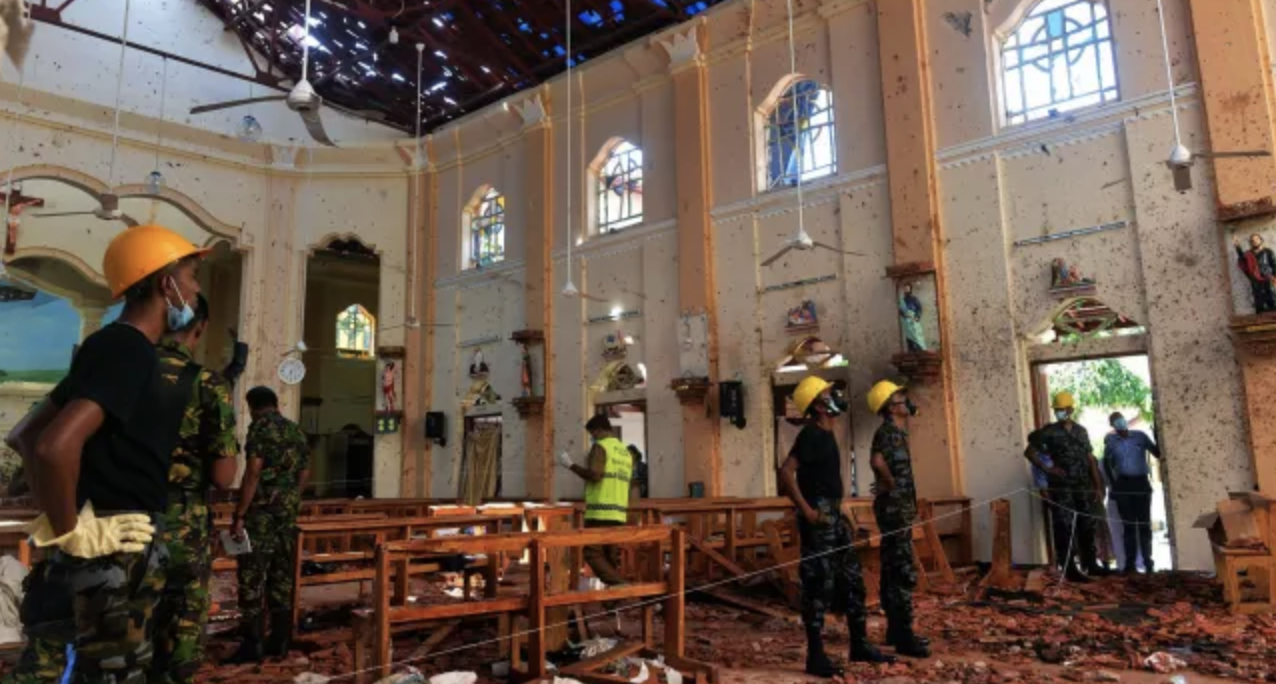
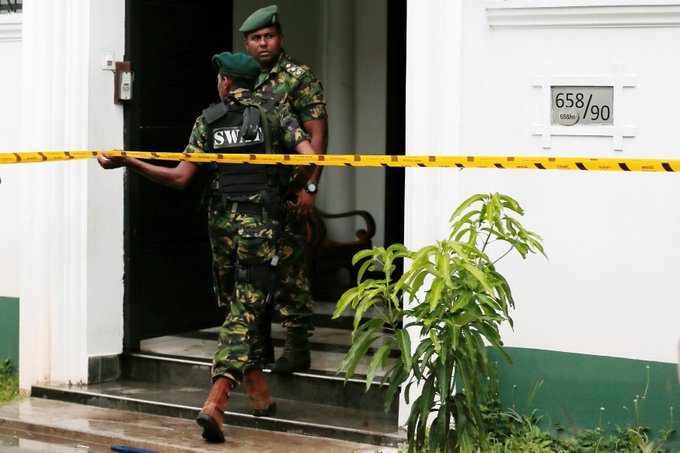

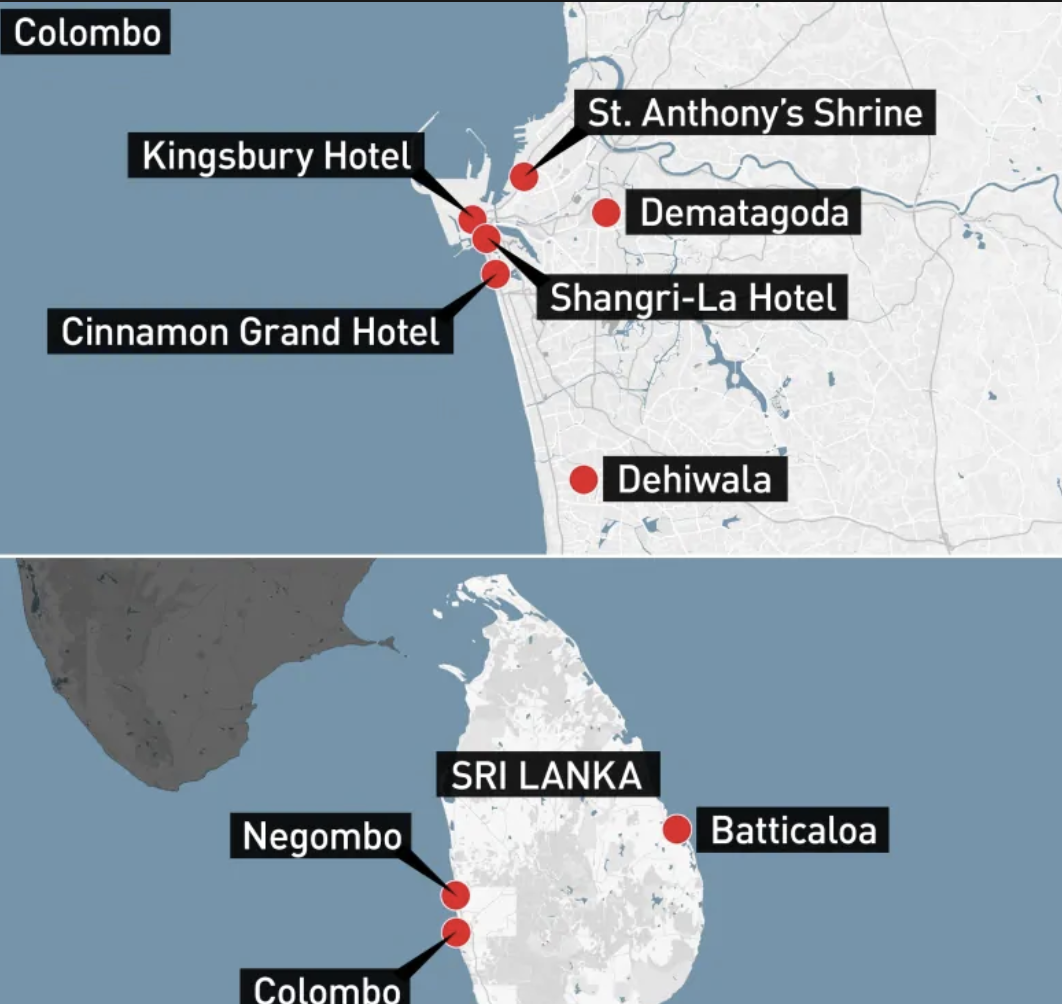


No comments:
Post a Comment
Note: only a member of this blog may post a comment.